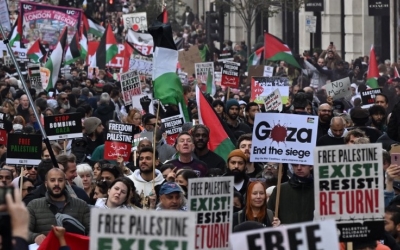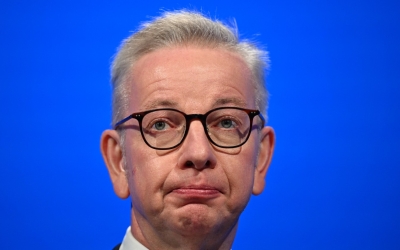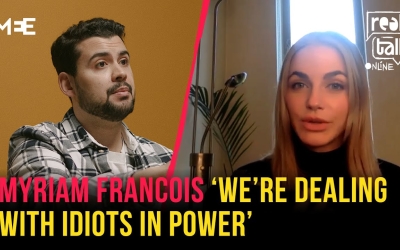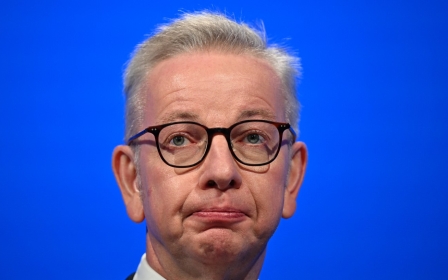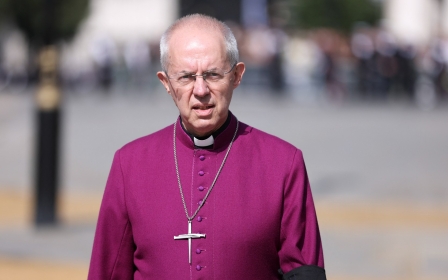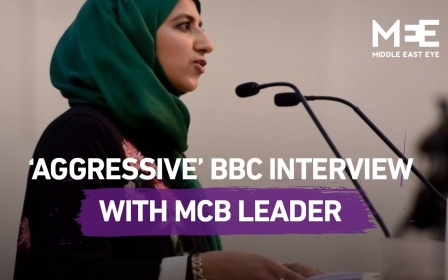How the Muslim Council of Britain was left out in the cold
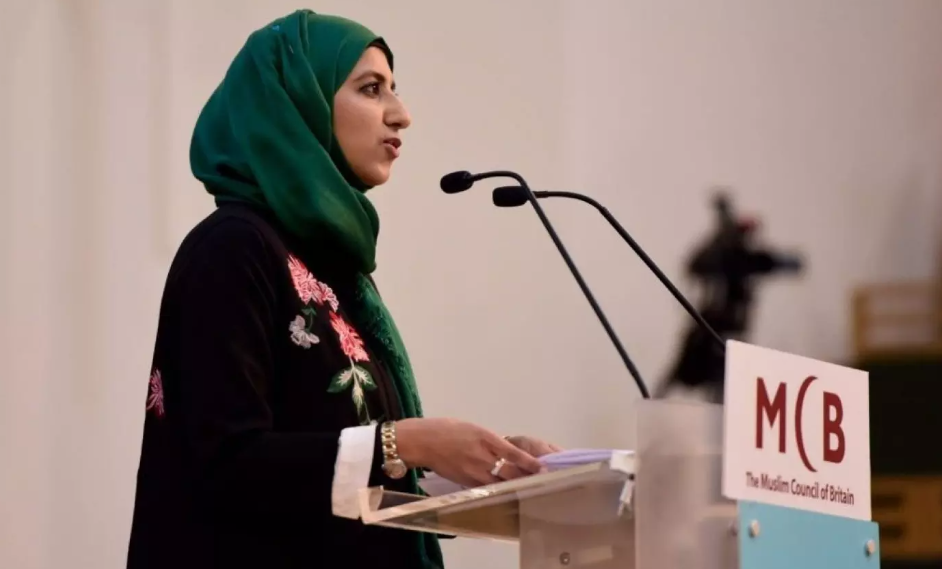
The Muslim Council of Britain (MCB) is the UK’s largest body representing British Muslims. But the British government refuses to engage with it.
More than that, it has withdrawn funding from a major interfaith charity because one of its trustees was an MCB member.
Most recently, it was reported that the government was considering designating the MCB an "extremist" organisation, using a new definition of the term announced last week by Communities Secretary Michael Gove.
Gove did not name it among a number of Muslim organisations which he told parliament the government planned to assess and "hold to account", but the MCB nonetheless said it was concerned that some of its affiliates could be targeted, and joined human rights, civil liberties and equality campaigners in condemning the definition.
Zara Mohammed, the MCB's secretary general, said: "Since its inception, the Muslim Council of Britain has championed the common good, urging its affiliates to make positive contributions to our nation, foster unity, and advocate for justice for all communities. These are the shared values of Britain, even if certain members of the government fail to recognise them."
New MEE newsletter: Jerusalem Dispatch
Sign up to get the latest insights and analysis on Israel-Palestine, alongside Turkey Unpacked and other MEE newsletters
The MCB was established in 1994. Today, it is an umbrella organisation with over 500 members - including mosques, schools, local and county councils, professional networks and advocacy groups.
It is funded through affiliation fees from members, as well as donations and grants.
Much of the MCB’s work is in local communities. Its national initiatives include an annual conference of mosque leaders and volunteers, and the Centre for Media Monitoring, established in 2018 to assess and analyse British media coverage of Muslims and Islam.
The MCB describes itself as “cross-sectarian”, with both Sunni and Shia members, and it aims to remove “barriers to integration” for Muslims.
It encourages a defence of the UK’s “liberal democratic traditions and enviable civil liberties” and maintains that it does not seek “special rights or privileges” for Muslims.
In January 2021, in what was widely seen as a landmark moment for the organisation, the MCB elected its first female leader - 29-year-old Zara Mohammed, a training and development consultant from Glasgow.
"I hope it will inspire more women and young people to come forward to take on leadership roles," Mohammed said at the time. "They are the future of this organisation and our society.”
Over its history, MCB leaders have worked with civil servants and all major political parties. They have appeared at events alongside members of the royal family. They have also collaborated with the Church of England and worked on initiatives with the National Health Service.
The organisation also has a long record of supporting Muslim involvement in the UK’s armed forces.
Cut off from government engagement
Conventionally, the British government and local authorities engage and work with civil society groups representing different communities, or sections of communities.
But since 2021, the MCB has found itself cut off from government engagement.
The Conservative government’s official reasoning for this is that “previous MCB leaders have taken positions that contradict our fundamental values and these have not been explicitly retracted”.
In 2021, then Prime Minister Boris Johnson's spokesperson said there had been a “longstanding policy since 2009” to boycott the MCB - but the reality is more complicated.
The MCB was briefly boycotted by Gordon Brown’s Labour government in 2009 after its then deputy secretary general, Daud Abdullah, signed the so-called Istanbul Declaration in Turkey. According to the government, the declaration called for attacks on Royal Navy vesseks if they tried to stop weapons for Hamas entering Gaza.
The declaration said: “The obligation of the Islamic Nation [is] to regard the sending of foreign warships into Muslim waters, claiming to control the borders and prevent the smuggling of arms to Gaza, as a declaration of war, a new occupation, sinful aggression, and a clear violation of the sovereignty of the Nation. This must be rejected and fought by all means and ways.”
But Abdullah said the statement “made no specific mention of attacks on British troops. The statement does say if foreign troops enter Gaza's territorial waters, it is the duty of Muslims to resist, as it would be seen as assisting the siege.” That was hypothetical, he maintained.
“I did not and do not condone calls for attacks on British troops.”
The MCB denounced the statement, which it said was signed by Daud in a strictly personal capacity. Daud resigned and the Labour government resumed engagement with the organisation.
Conservative ministers also held meetings with the MCB between 2010 and 2015. Civil servants continued to meet with the MCB until March 2020.
'There is no replacement. [The government] left a gap because we are the leading Muslim representative body that is trusted, so there is no one'
- Zara Mohammed, MCB
That was when the organisation produced a dossier outlining what it said was evidence of Islamophobia against more than 300 individuals, including Conservative MPs, councillors, party members and special advisers inside 10 Downing Street.
Shortly afterwards, civil servants broke off relations with the organisation. Robert Jenrick, then communities secretary, sent a letter to government departments saying they were banned from engaging with the MCB.
The government has also faced calls to further ostracise the MCB from neoconservative commentators and allies.
In his contentious review of Prevent, published last year, William Shawcross identified engagement between the MCB and police as a cause for concern, while Robin Simcox, who would become Britain’s commissioner for countering extremism in 2022, argued in 2019 that the MCB should be “left out in the cold”.
Simcox argued that engagement with the organisation and similar groups “is one of those zombie policies that always seems to return”.
Military chaplains
However, the MCB has continued to work with some official institutions.
The MCB's deputy general secretary is currently a member of the Crown Prosecution Service London Scrutiny and Involvement Panel, as well as the Police Islington Advisory Group.
Until recently, the MCB also worked with the Ministry of Defence (MoD) by serving as a referee for imams applying to become military chaplains.
'It seems our civil society participation is a fast-track way of attracting hostile attention from ministers and government departments'
- Hassan Joudi, former MCB assistant secretary general
But this was not public knowledge. In late October 2023, the Telegraph revealed that the MCB was working with the MoD. As a result, in early November, government ministers ordered the MoD to cut all ties with the MCB.
“It is barking,” the MCB’s secretary-general Zara Mohammed told the Guardian. “There is no replacement. [The government] left a gap because we are the leading Muslim representative body that is trusted, so there is no one.”
Rabbi Warren Elf, a Jewish faith leader in Manchester, criticised the government’s approach to engagement with Muslims in February.
“If anyone says something in keeping with their role as a Muslim leader that the government doesn’t like,” he told the Religion Media Centre, “they drop them.”
In recent months, the government has taken further steps to target the MCB.
A major interfaith charity, the Inter Faith Network (IFN), was forced to close in February after Gove withdrew its funding - because one of its trustees is an MCB member.
The IFN, founded in 1987, described itself as working “to promote understanding, cooperation and good relations between organisations and persons of different faiths in the UK".
It counted a range of religious and community associations among its member bodies. Gove told the IFN on 19 January that he was “minded” to withdraw its funding due to the “reputational risk” posed to the government by an MCB member serving as one of the IFN’s trustees.
The MCB member in question was Hassan Joudi, formerly an MCB assistant secretary general.
The IFN responded in a statement that its board did not seek Joudi’s resignation and “affirmed his role as a valued colleague”. On 24 February, it announced that it was headed for closure.
Afterwards, Joudi denounced “Gove’s willingness to undermine decades of interfaith capacity-building in local communities across the UK, by attempting to dictate and coerce the composition of a charity’s board of trustees to suit ministerial biases".
He added that for young Muslims, “it seems our civil society participation is a fast-track way of attracting hostile attention from ministers and government departments”.
The IFN’s closure could make it difficult for the MCB to work with other civil society groups in the future.
In an interview last week, Zara Mohammed told the Guardian that Muslims in the UK and the organisations representing them had become "a very suitable political punchbag”.
“Surely engaging with us is a great thing because we represent so many Muslim communities. And if we engage, we can do more work together. But you’re isolating us and marginalising us.”
Middle East Eye delivers independent and unrivalled coverage and analysis of the Middle East, North Africa and beyond. To learn more about republishing this content and the associated fees, please fill out this form. More about MEE can be found here.


